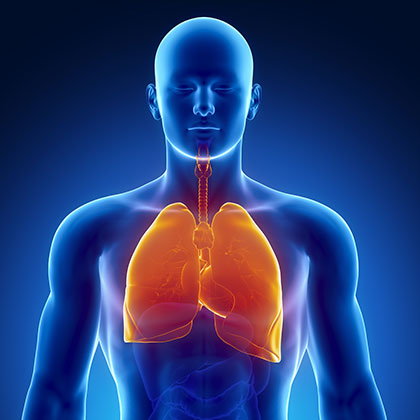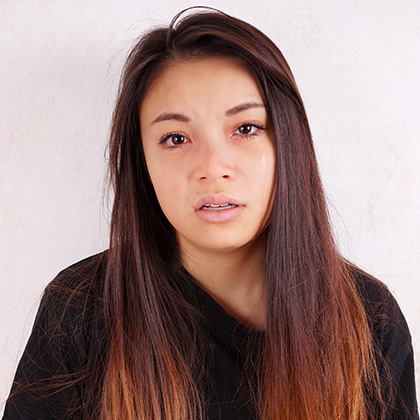If you develop a runny nose, itchy eyes and start sneezing at the first sign of spring, chances are you have hay fever. Also called seasonal allergic rhinitis, hay fever is caused by an allergy or sensitivity to pollen, a fine powder released by plants. It’s called seasonal rhinitis because it only affects sufferers during the times of year when pollen levels are high (usually during spring and summer).
According to Patient, hay fever is a common allergic condition that affects up to one in five people in the UK, usually developing in childhood and the teenage years. And as well as sneezing, runny nose, watery eyes and itchy ears, nose and throat, it can cause a range of other symptoms including the following:
-
Stuffy, blocked-up nose
-
Persistent, hard-to-shift cough
-
Lack of energy
-
Reduced sense of smell
-
Hearing difficulties
-
Facial pain or discomfort
-
Irritability
What happens?
The immune system of someone with hay fever perceives pollen as a threat. So when these tiny particles are in the air, they can come into contact with the cells lining your mouth, nose, eyes and throat.
This then triggers your immune system into action, just as it would if it were being attacked by a cold virus (which explains why the symptoms of hay fever and the common cold are similar).
Your immune system releases chemicals designed to protect your body from what it sees as an attack, and it’s these chemicals that make you sneeze and your nose, throat and eyes inflamed.
Nobody really knows why some people have an immune system that’s over-sensitive in this way, but having other allergies or asthma, or having hay fever running in the family, may increase your risk.
The pollen season
There are three main categories of pollen releasing around 30 types of pollen during the hay fever season, and the bad news is you could be affected by more than one of them. Grass pollen allergy is, according to the NHS, the most common cause of hay fever (ii). But trees and weeds release pollen too:
-
Tree pollen
This usually starts to be released in late March and continues to mid-May, though alder, hazel and yew pollens can sometimes be released in January, while pine and lime pollens can continue as late as July. -
Grass pollen
The grass pollen season usually runs from mid-May to July, but it has been known to start early in May and last until early September. -
Weed pollen
Plants such as rape seed oil, plantain, nettle, dock and mugwort usually start releasing pollen at the end of June and continue until September (though again, the weed pollen season can last longer).
Knowing which type or types of pollen you react to may help, since you can take steps to control your exposure to them before the pollen season starts. Keeping an eye on the pollen count can also help. For instance, you may be able to avoid going outdoors if you know the pollen count is going to be particularly high.
The pollen forecast by Worcester University is a handy weekly round-up of the various different types of pollen in circulation. Alternatively, check out more details about the forecast at the Met Office’s website or download the Met Office Weather Forecast app for pollen push notifications during the hay fever season from the App Store or Google Play.
Tips to reduce hay fever symptoms
If your immune system reacts to pollen, avoiding your exposure to it as much as possible can help to reduce your symptoms. Thankfully, there are lots of things you can do:
-
Keep an eye on the pollen count and, whenever possible, avoid going outside when it’s high (50 or higher). Also try to keep your windows and doors shut (if it gets too warm, draw your curtains to keep the sun out).
-
Use a vacuum with a HEPA filter and use it to clean your floors, carpets and soft furnishings regularly during the pollen season. Dust with a damp cloth to trap pollen and stop it from spreading around your home, and avoid having fresh flowers indoors.
-
If you have to go outside, wear sunglasses (ideally wraparound glasses) to stop pollen getting into your eyes. Also try applying a small amount of petroleum gel inside your lower nostrils to stop pollen coming into contact with your nasal passages.
-
Avoid grassy areas, especially in the early morning, evening and at night (this is when pollen counts are highest).
-
If you’re planning a day out, head to the seaside rather than the country (there may be lower pollen levels on the coast, as sea breezes can blow pollen inland).
-
Whenever you’ve been outdoors, shower and wash your hair when you return home and put on clean clothes. This may help prevent your symptoms getting worse in the evening. Wash the clothes you were wearing outside to remove any pollen that may be trapped in the fabric. You may also want to use a nasal rinse made of saline solution to flush any pollen out of your nasal passages (these are widely available online and at pharmacies).
-
If you have pets that go outdoors, wash them regularly to rinse any pollen from their fur and clean all bedding and soft furnishings frequently that they lie on.
-
If possible, avoid drying clothes outside, as the fabrics can transfer pollen to the inside of your home when you bring your clothes in.
-
Avoid letting pollen get into your car by keeping the windows closed during the hay fever season. You can also buy pollen filters for the air vents in your car, which you should change each time your car is serviced.
-
Quit smoking and avoid being near other people who are smoking. Cigarette smoke can irritate the lining of your eyes, nose, throat and airways, which can make your hay fever symptoms worse.
-
You may also want to avoid using household products that contain chemicals, such as cleaning products, air fresheners, perfumes and paints, as these too may irritate your eyes, nose, throat and airways.
For most people, it’s not practical to avoid pollen altogether. This may explain why hay fever medicines are popular during the spring and summer months. There are several types of medicines available over the counter at pharmacies that may help reduce your symptoms, including the following:
-
Antihistamines
There are several different types of medicines called antihistamines that may help reduce symptoms such as sneezing and itching. These work by reducing your body's production of histamine – one of the chemicals released by your immune system in response to contact with pollen – and are available as tablets, liquids, eye drops, nasal sprays and creams. -
Decongestants
Available as nasal sprays, tablets and combined in tablets with antihistamines, decongestants can be useful for relieving the congestion that comes with hay fever, and help you to breathe through your nose more easily. Nasal spray decongestants can be particularly effective but shouldn’t be used for more than seven days, as longer-term use can result in your symptoms becoming worse (this is called rebound nasal congestion). -
Sodium cromoglycate
If your hay fever makes your eyes red, sore or itchy, eye drops containing sodium cromoglycate may help by stabilising the cells in your immune system that are responsible for producing histamine. Other eye drops are also available that contain antihistamine medicines. -
Steroids
Steroid nasal sprays can be effective, especially in the case of a blocked nose. These help by reducing inflammation in the nasal passages, making it easier for you to breathe. You can also get steroid nasal drops, which are more powerful than sprays (these, however, shouldn’t be used for prolonged periods of more than two to four weeks). If you have severe hay fever symptoms, your GP may prescribe steroid tablets to take in the short term in certain circumstances (if you need fast relief from your symptoms for an important occasion, for example). -
Saline solutions
Nasal saline sprays offer a more gentle and natural alternative to antihistamines and decongestants. They can also be used alongside conventional hay fever medicines if you need them when your symptoms are at their worst.
Does diet affect hay fever?
If you have hay fever, there’s a chance certain foods could set off a reaction that makes your mouth itch and your lips tingle and swell.
Known as oral allergy syndrome, this may be caused by the fact that some types of fruit, vegetables nuts and spices contain proteins that are similar to those found in some types of pollen. These proteins may be recognised by your immune system and, in turn, trigger a reaction in your mouth and lips.
According to Allergy UK, oral allergy syndrome affects around two per cent of the UK population (iii). Some may be affected by just one or two foods that cause oral allergy syndrome, while others can react to a much wider range of foods. Almost any type of fruit, vegetable or nut can cause oral allergy syndrome – some of the most common include:
-
Fruit
Apples, peaches, pears, plums, cherries, nectarines, apricots, kiwi fruit and strawberries -
Vegetables
Carrots, celery, tomatoes -
Nuts
Hazelnuts, almonds, walnuts, brazil nuts and peanuts -
Soya milk
In most cases, the allergens are destroyed by cooking, and most people with oral allergy syndrome can tolerate fruits and vegetables that are well-cooked (though not all can tolerate roasted nuts).
Alcohol can also be a problem for those who have allergies, including hay fever, other forms of rhinitis and asthma, because it contains histamine (the chemical that your immune system produces in response to an allergen, causing your symptoms).
What should you eat?
Some foods, however, may help relieve the symptoms of hay fever and rhinitis. Indeed, many experts believe eating foods rich in an antioxidant called quercetin could help, since quercetin is thought to have anti-allergic properties.
Foods that contain quercetin include blueberries, blackberries, blackcurrants, kale, onions, broccoli, yellow and green peppers and black tea.
It’s also thought that other brightly coloured fruit and veg may help your body fight against hay fever symptoms too, as they contain healthy substances such as beta carotene, vitamin C and other antioxidants. Just take care with any foods that may cause oral allergy syndrome.
Natural remedies for hay fever
Uncontrolled hay fever can make you feel miserable. Thankfully there are a few natural remedies for hay fever you could use, either on their own or alongside conventional hay fever medicines. These include the following:
High-strength multivitamin and mineral
Taking a high-strength multivitamin and mineral formula that contains antioxidant vitamins (A, C and E) and selenium may help to boost your overall health and immune system. Vitamin C in particular may be beneficial, as it’s thought to be a natural antihistamine. Vitamin B5 – also known as pantothenic acid – is often recommended for nasal congestion, as it’s thought to increase the amount of cortisone produced by the adrenal glands (cortisone is the main ingredient in steroid nasal sprays designed to help clear a stuffy nose).
Quercetin
A plant substance belonging to the bioflavonoid family, quercetin is widely used in supplement form by natural health practitioners to treat allergic conditions including hay fever. In lab tests, quercetin has been shown to prevent the release of histamine from immune cells (i) as well as other substances involved in allergies (vi). A daily dose of 500mg is advisable.
Omega-3 fatty acids
The omega-3 fatty acids found in fish oils are widely accepted to have an anti-inflammatory action, with one study suggesting those whose diets are rich in one particular omega-3 fatty acid – namely eicosapentaenoic acid (EPA) – and vitamin C have a lower risk of hay fever (vii). If you don’t regularly eat two to three portions of oily fish a week (such as salmon, sardines, pilchards, trout, fresh tuna or herring), you may want to consider taking a high-strength fish oils supplement that provides around 3g omega-3 fatty acids a day.
If you’re a vegetarian or vegan you can still benefit from an omega-3 supplement, thanks to the availability of products that contain the natural triglyceride (TG) form of omega-3. This is sourced from plant organisms called microalgae rather than fish.
You may also want to consider a natural therapy such as acupuncture, which has shown some promise for hay fever (viii). One study also suggests self-hypnosis may be worth a try (ix).
While symptoms of hay fever can be irritating, with the right steps they are easily manageable. For even more helpful articles, feel free to visit our health library.
References:
-
Available online: https://patient.info/allergies-blood-immune/hay-fever-leaflet
-
Available online: https://www.nhsinform.scot/illnesses-and-conditions/immune-system/hay-fever#causes-of-hay-fever
-
Available online: https://www.allergyuk.org/assets/000/001/548/Oral_Allergy_Syndrome_original.pdf?1512985580
-
Micek J et al., Quercetin and Its Anti-Allergic Immune Response. Molecules. 2016 May 12;21(5).Available online: https://www.ncbi.nlm.nih.gov/pubmed/27187333
-
Ogasawara. H, Middleton. E Jr. Effect of selected flavonoids on histamine release (HR) and hydrogen peroxide (H2O2) generation by human leukocytes [abstract]. J Allergy Clin Immunol. 1985;75(suppl):184.
Middleton. E Jr. Effect of flavonoids on basophil histamine release and other secretory systems. Prog Clin Biol Res. 1986;213:493-506. -
Yoshimoto. T, Furukawa. M, Yamamoto. S, et al. Flavonoids: potent inhibitors of arachidonate 5-lipoxygenase. Biochem Biophys Res Commun. 1983;116:612-618.
-
Nagel. G, Nieters. A, Becker. N, Linseisen. J. The influence of the dietary intake of fatty acids and antioxidants on hay fever in adults. Allergy. 2003 Dec;58(12):1227-84.
-
Acupuncture for persistent allergic rhinitis: a randomised, sham-controlled trial. SourceMedical Journal of Australia. 2007;187:337-341.
-
Langewitz. W, Izakovic. J, Wyler. J, et al. Effect of self-hypnosis on hay fever symptoms—a randomised controlled intervention study. Psychother Psychosom. 20052005;74:165-172.
Related Posts
Disclaimer: The information presented by Nature's Best is for informational purposes only. It is based on scientific studies (human, animal, or in vitro), clinical experience, or traditional usage as cited in each article. The results reported may not necessarily occur in all individuals. Self-treatment is not recommended for life-threatening conditions that require medical treatment under a doctor's care. For many of the conditions discussed, treatment with prescription or over the counter medication is also available. Consult your doctor, practitioner, and/or pharmacist for any health problem and before using any supplements or before making any changes in prescribed medications.

Christine
Christine Morgan has been a freelance health and wellbeing journalist for almost 20 years, having written for numerous publications including the Daily Mirror, S Magazine, Top Sante, Healthy, Woman & Home, Zest, Allergy, Healthy Times and Pregnancy & Birth; she has also edited several titles such as Women’ Health, Shine’s Real Health & Beauty and All About Health.
View More



